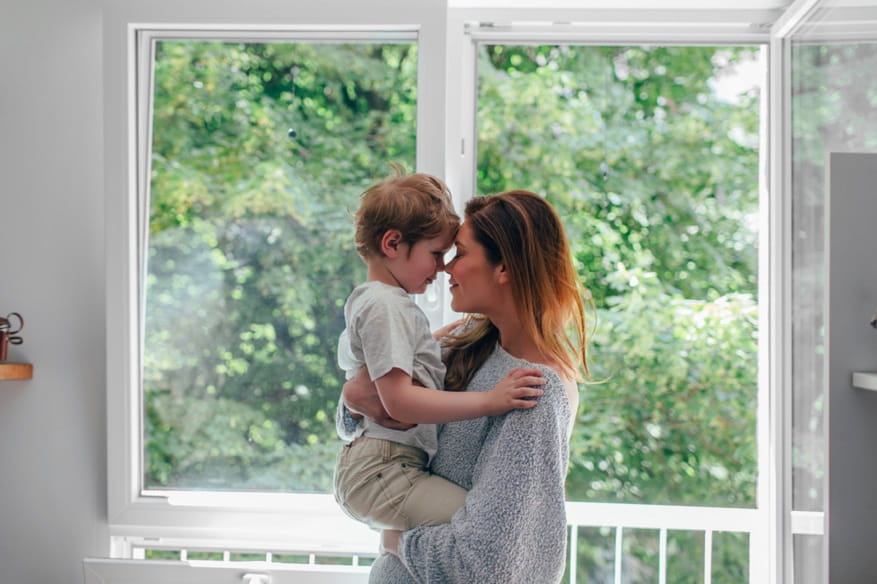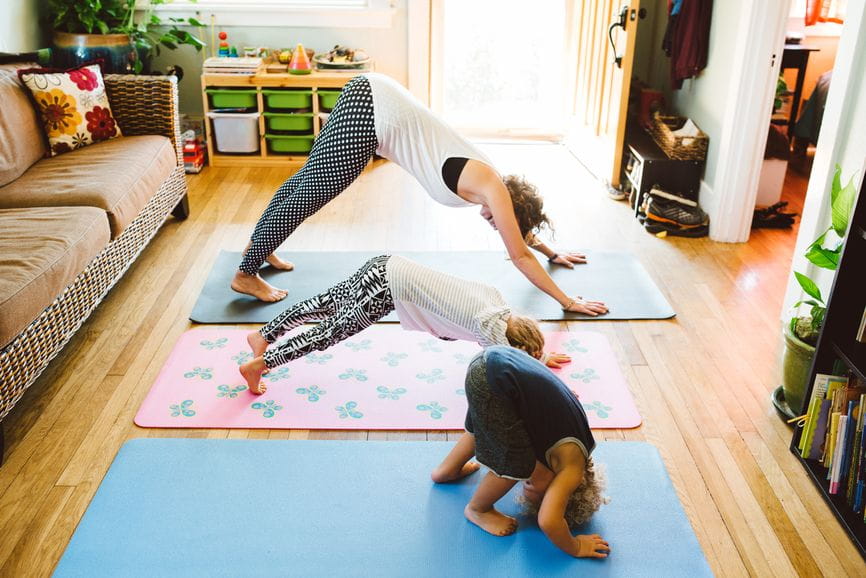“Upppies, Up, UP!” 5 Ways to Manage Your Little Clinger

“Carry me! Carry me! Up-up-uppies!”
Though three-year-olds are capable of standing on their own two (adorable) feet, many among them will force you into weight training by demanding to be carried to all places near and far—often by you and only you.
I’m not talking about the child who wants to be hoisted up for a better view while waiting in a line, or the kid who (reasonably) asks to be carried after a long day trekking around the zoo. I’m talking about the kids who need to be your arms all the time—to the point that your biceps are getting a serious workout and your patience is thinning.
Now, as a longtime educator and a mom myself, I’m going to tell you what’s awesome about this: Your child is attached to you—not just physically, but emotionally. You are your child’s secure base, and you are the one she seeks out when she needs comfort and assurance. That’s healthy.
Still, though, hauling a 35-pound weight around while trying to trudge upstairs to the shower or to the last row of a mega parking lot has obvious drawbacks.
So why do some kids insist on being carried? Let’s break it down.
Young children have far fewer skills to process change, unpredictable situations, new people, and unfamiliar environments. Most likely, your three-year-old has encountered something unsettlingly new that has her sticking like glue to the person she’s most connected to. Now that’s nothing to worry about per se. Periodically, we all go through a little separation anxiety (and most of us are pretty relieved just to see a familiar face in a room full of strangers).
However, if you’re dealing with a clingy child who’s draining your energy with his need for constant attention, take a quick assessment of any change or unpredictable situations that might be difficult for him to understand, process, or put into words. Then consider the following suggestions for smoothing out the rough spots:
1. For the very young child who is super clingy, it’s best not to refuse her.
That’s because your goal is to create a secure base for her, and before age four or so, building up her sense of security in the world is one of the best things you can do for her!
2. On the other hand, sometimes you have to get dinner cooked.
Sometimes it’s just not possible to respond to his “uppy!” requests. In this case, get down to his eye level and, in a non-corrective and neutral tone, explain to him that you are cooking dinner and you’ll hold him when you’re done. Sometimes a visual timer can help your young child understand the concept of, say, 10 minutes.
3. Keep your child’s routines as consistent as possible.
The more predictable her life is, the more independent and confident she’ll feel. Life is less scary when you know what’s happening next.
4. Talk about any upcoming changes or disruptions to his routine ahead of time.
Talking with your child beforehand will better prepare him to manage the situation. (Sudden change is more difficult than prepared change.)
5. Avoid sneaking away from your child.
It’s tempting to employ the getaway strategy when leaving a clingy child at preschool. But sneaking away only reinforces the message that unpredictability is stressful—and that Mom disappears.
Clingy behavior will ease as your child begins socializing with other children and becomes more confident and independent. Every now and then, your child may need to cellophane-wrap herself to you when a temporary stress creeps into her world. But just remember, it’s awesome that she chooses you when that happens.




